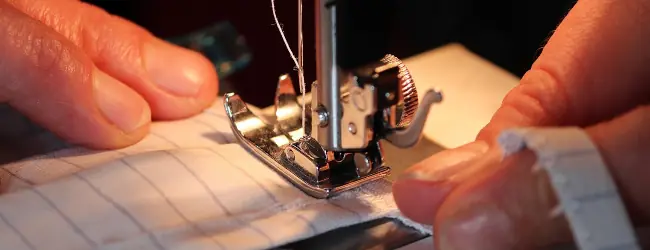Several days ago, I received my first order for making bags. That made me consider my current ability and what to create. Let’s talk about it.
How to proceed without confidence
Sometimes, we want confidence or guarantees for future success.
They are reactions of anxiety and self-doubt. Unfamiliar things and those that seem difficult intimidate us. That makes us desire something in a higher skill, authority, or past successful examples that persuade others.
In other words, we are scared.

However, we sometimes don’t know how to handle that mind. Pretending to be bold while ignoring our honest feelings is not our style. We know we are still weak and unskilled. We want another kind of energy to proceed.
One solution is to be rational. That tells us we don’t need to make ourselves appear greater than we really are. Today, I will introduce that perspective with my recent experience.
The fear of being evaluated by others
We don’t need to pretend to be strong. We can create attractive products even with just a few basics, especially at the beginning stage. That awareness will allow you to proceed as you are.
To make it easier to understand, let’s look at my recent experience.
I have received my first order for sewing bags, as said at the top of this article. It was a test for me. Creating something satisfying for the customer will bring me continuous orders.
It means that it is unavoidable to be evaluated by others. Business is the process of exchanging value with others. Value needs to be assessed.

Being evaluated by others is often one of the most disgusting things for those with unique individuality. Although uniqueness is not something comparable, the majority of people judge it based on whether it is useful now, rather than identifying how to use it. That makes us suppress our uniqueness and try to become like others. That leads to an inferiority complex.
I initially felt like that as well. The judgment of others scared me. I was tempted to try to make myself appear as impressive as possible. That made me feel that I should create something advanced and complex, like products that look professionally made. That was my emotional reaction.
Going my reasonable way
However, my rationality guided me toward a more reasonable perspective.
The trigger was the bag designs created by top-class designers. When I looked at various bag designs on the internet, I realized something strange: the simpler its design, the more attractive it appeared to me. Those producers with simplicity were all top-class designers. On the other hand, the more technically complex the bag was, the more pointless it seemed. They had many unnecessary techniques and decorations that would not function. Those creators were all made by amateurs.
In other words, I realized that the belief that top-class creators create complex things was a misconception.

That freed me from the worries about being evaluated. I realized that I need to neither impress others nor create something complex that I cannot make. They are unreasonable. I should do what I can do now based on my philosophy.
The sewing techniques I currently have are only two: sewing straight correctly and simple patchwork.
Although they are fundamentals for sewing, I realized that their simple beauty creates attraction. In other words, many people are adding unnecessary, pointless elements and ruining their products.
Rationally speaking, we can create reasonable products with just the basics. This doesn’t go against the cookie strategy I introduced in an earlier article (this article). This is a part of that strategy. Those who can understand them may overcome the beginner level sooner.
Conclusion
That is why we don’t have to pretend to be strong.
We need to neither impress others nor create something complex that we cannot realize. They are unreasonable.
We can create reasonable products even with just a few basics, especially at the beginning stage.
That awareness might allow you to proceed as you are.
Thank you for reading this article. I hope to see you in the next one.


